Accelerating the Electrified Energy Future
With the acceleration of electrification, increasing demands on power delivery infrastructure, and growth in renewable energy resources, the complexity of the energy system is rapidly intensifying.
Energy Delivery and Customer Solutions researchers use EPRI’s multiple labs to evaluate new technologies. The results of EPRI lab and field tests are designed to help the electric industry better understand the performance of new and existing technologies to enable better decision making.
Customer Solutions Capabilities
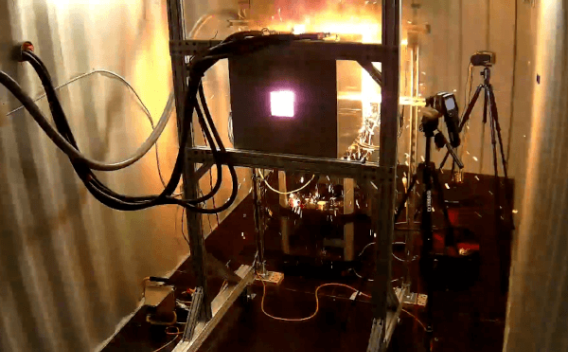
DC Arc Flash
Lead: Rick Langley
DC arc flash testing of battery energy storage systems (BESS) to characterize hazards and risks, guide BESS design, engineering, and construction, and inform the selection of personal protective equipment (PPE).
Metering
Lead: Tom Cooke
Power, energy, and power quality metering assessment: A capability to replicate voltage sources and load currents to mimic daily feeder trends, simulate system faults, and generate various load profiles.
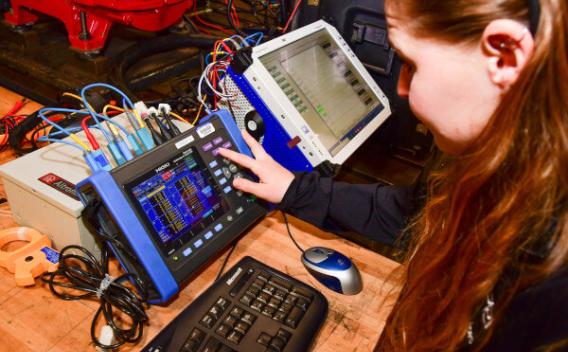
Power Quality
Lead: Mark Stephens
Focus on improving the quality of the power delivered to critical customers and the ability of electrical equipment to properly function in the power system.
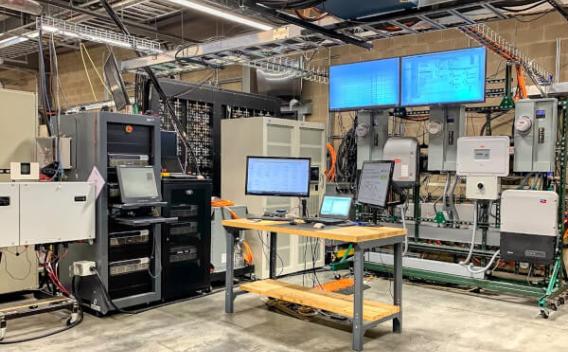
Smart Inverter/ DER Integration Lab
Lead: Aminul Huque / Chuck Brewster
Smart Inverter and DER (Solar PV, Battery Energy Storage, V2X, and Hybrid) technology testing under various real-world weather and power system conditions including different types of balanced/unbalanced faults, LROV, GFOV, islanding, phase jump, ROCOF, etc. Evaluates performance of grid-edge power electronics supporting safe, reliable, and efficient DER integration.
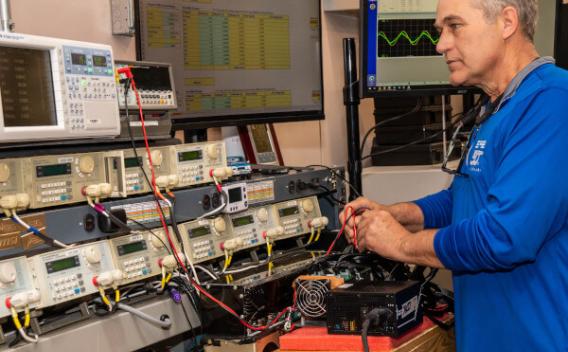
Power Supply (80 PLUS)
Lead: Bill Howe
Power supply efficiency testing.
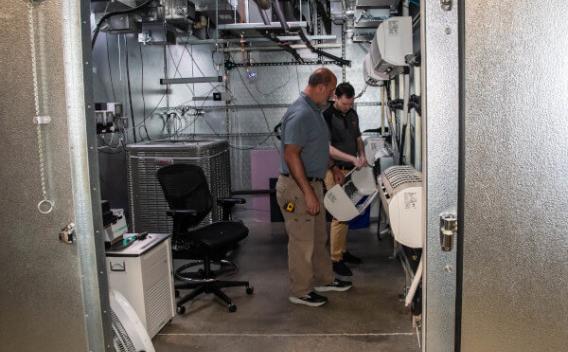
Thermal
Lead: Ron Domitrovic
Thermal chambers for testing efficient heating and cooling systems and gas/electric water heaters.
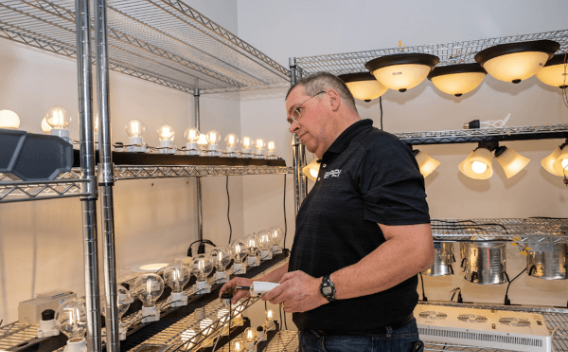
Lighting and Lighting Controls
Lead: Frank Sharp / Doug Lindsey
Laboratory and field evaluation of on and off grid interior and exterior lighting and lighting controls. Results increase understanding of the real-world performance, efficiency, control and lifespan of lighting products and how lighting can be utilized within utility energy efficiency, demand response, demonstration / community engagement, and peak shifting efforts.
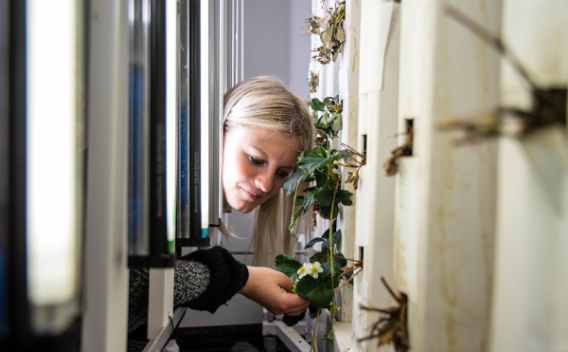
Agriculture Growth
Lead: Frank Sharp / Doug Lindsey
Laboratory evaluation and field monitoring of Controlled Environment Agriculture (CEA) operations (containers, greenhouses, vertical farms, and hybrid growing solutions) and relevant general end use, or agriculture-specific technologies to increase understanding of the real-world energy, water, grid, utility, sustainability, and community impacts of CEA.
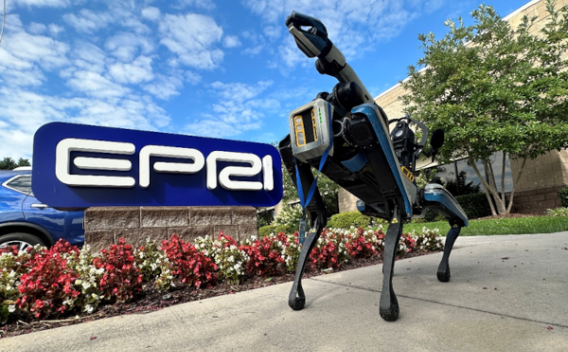
Robotics
Lead: Mark Stephens
Autonomous mobile measurement robots that can navigate a survey site autonomously while taking measurements with various sensors.
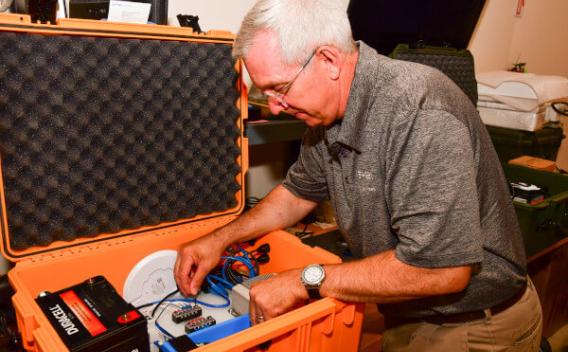
Field Site Measurement Collection
Lead: Glen Bailey
Custom design data boxes for monitoring and collection of data at field sites. Wireless and wired sensors.
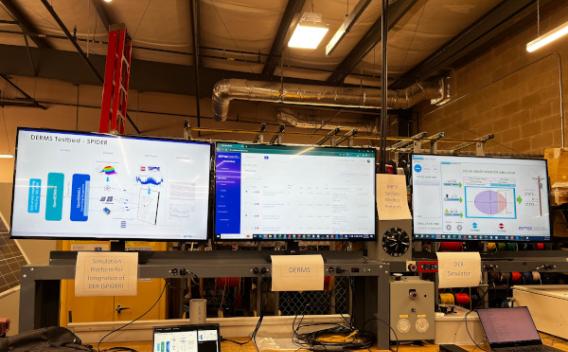
SPIDER
Lead: AHM Jakaria
The Simulation Platform for Integration of DER (SPIDER) is a cohesive system that can emulate an advanced distribution system from headend applications to edge devices. It allows users to simulate and evaluate the impact of DER Management Systems (DERMS) solutions on distribution grids.
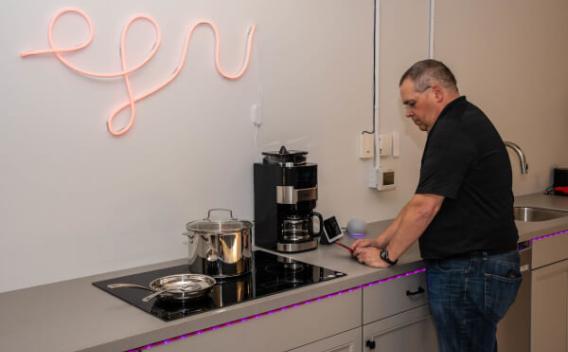
Smart Homes and Buildings
Lead: Ron Domitrovic
Laboratory testing and field evaluation of connected or smart residential, commercial, and industrial end use loads, including, but not limited to washing and drying, cooking, refrigeration, entertainment, electrical panels, point of sale or kiosk systems, robot, HVAC, water heating, and lighting to understand their current and potential roles in load growth, peak shifting, energy efficiency, demand response, demand flexibility, and GHG reduction utility programs.
Information, Communication and Cyber Security (ICCS) Lab Capabilities
EPRI's ICCS labs are at the forefront of evaluating emerging technologies, standards, and protocols, with a focus on interoperability, data integration, telecommunications, cybersecurity and related research in the Information & Communication Technology (ICT) (161) and Cyber Security (183) Programs. Our unique capabilities replicate utility environments for testing and training, addressing critical cyber security challenges across integrated security operations centers, substations, DER, and grid-edge devices. With specialized labs dedicated to cybersecurity, DER interoperability, enterprise systems, telecommunications, and advanced metering systems, we accelerate utility innovation and industry standards adoption.
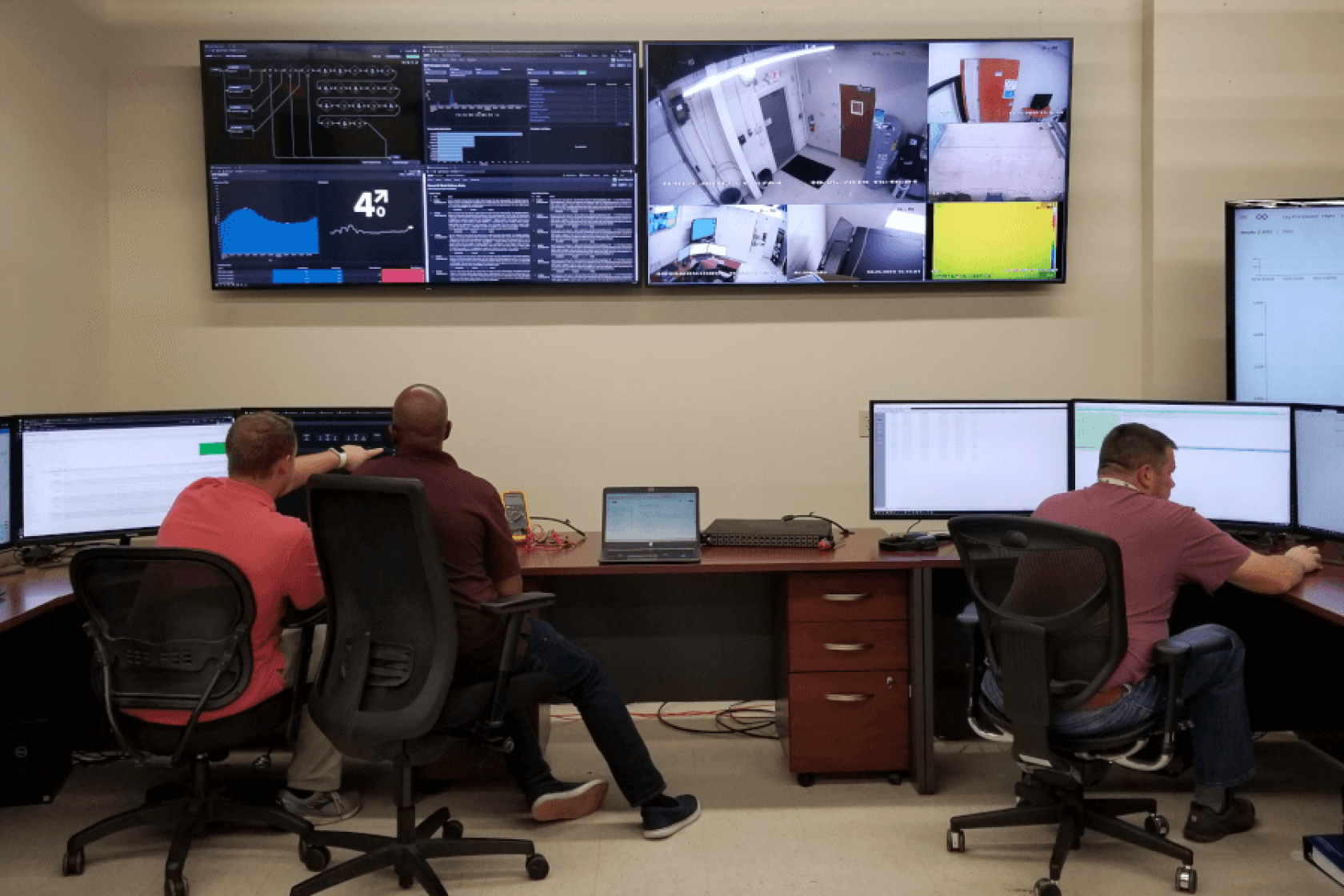
Cyber Security Integrated Security Operations Center (ISOC)
Lead: Ben Sooter
The ISOC lab in the Cyber Security Program (183B) supports incident and threat management research for mission-critical utility operations. It integrates security events from OT, IT, and physical security systems, enhancing prevention, monitoring, detection, response, and recovery. The lab evaluates firewalls, ICS focused IDS and Network Visibility Tools, SIEMs, Secure Remote Access, and AI based detection and analysis. With a unique multi-vendor environment, it accelerates utility cyber security testing and utility-specific use cases in a controlled environment, aiding in resolving industry challenges.
Cyber Security Digital Substation Lab
Lead: John Stewart
This cyber security lab simulates digital substation systems to support research in the Cyber Security Program (183C), offering a realistic environment with DNP3, IEC-61850 protocols, synchrophasors, and emerging security technologies. It integrates potential security controls for evaluating operational impacts. Equipment includes protection and control devices from major vendors, support for standard protocols, diverse communication network options, and integration with other lab environments (control center, ISOC, etc) for comprehensive testing.
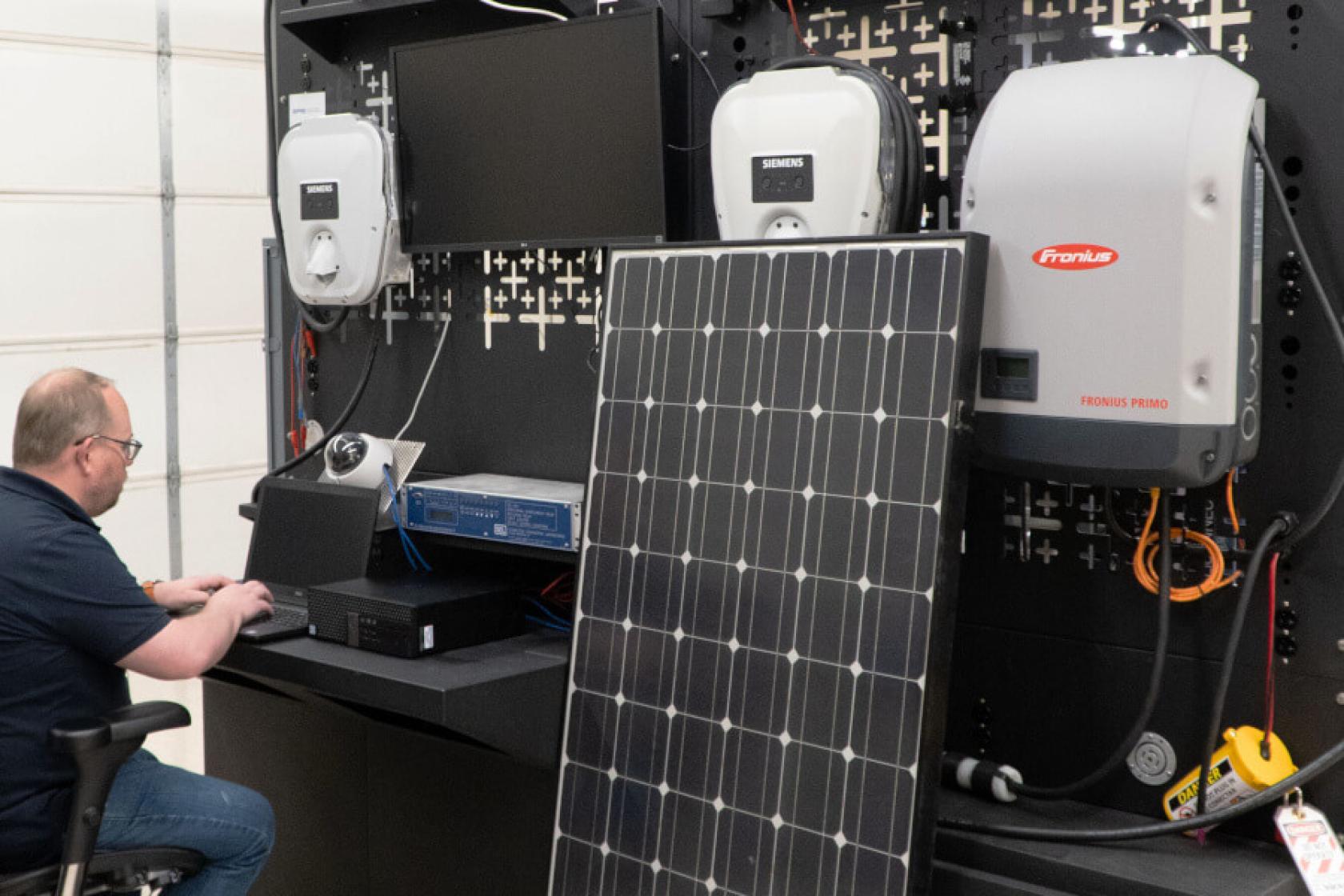
Cyber Security for DER and Grid Edge
Lead: Xavier Francia
As a resource for the Cyber Security Program (183D), this lab supports cyber security testing of DER technologies and communication protocols to aid in identifying vulnerabilities and capturing risk narratives associated with the unique challenges of grid systems interoperating with DERs. Testing also includes evaluation of cyber security controls to support utilities in identifying practical engineering and architectural strategies to secure DER and DERMS technologies. A resource for the Cyber Security (183) Program.
DER Interoperability
Lead: Ben Ealey
EPRI's DER Interoperability Lab supports research in our ICT Program (161D). This lab was established as an industry resource recognizing that interoperability is an essential enabler for DER technology to scale. We evaluate DER protocols with a focus on integration tools, assessments and “plugfests” to test products. The lab complements our DER Interoperability Interest Group where industry labs and stakeholders discuss findings to drive industry-wide progress towards seamless interoperability.
Enterprise Systems Interoperability
Lead: Daniel Lowe
As a resource for the ICT Program (161E), this lab supports IEC Common Information Model (CIM) standards interoperability testing and evaluations between various vendors for grid model management to numerous enterprise platforms like DERMS for DER Group Management. Interoperability tests frequently occur at EPRI hosted “plugfests” to physically connect systems and accelerate addressing issues in real-time in a neutral environment. Our expanding capabilities also include a DER Testbed enterprise solution for controlling DERs via an AMI headend.
Telecommunications
Lead: Tim Godfrey
Our telecommunications lab, vital to our ICT Program (161G), provides a wide array of capabilities for utility research and field testing at utilities like 6 GHz interference testing. We specialize in LTE and 5G network performance assessment, 5G URLLC evaluation, AFC testing for Wi-Fi 6E and 5G NR-U, private LTE utility use cases, and emergency communication solutions assessment. Our facilities include a Nokia MPLS network and a private LTE network for prototyping and testing teleprotection and failover scenarios.
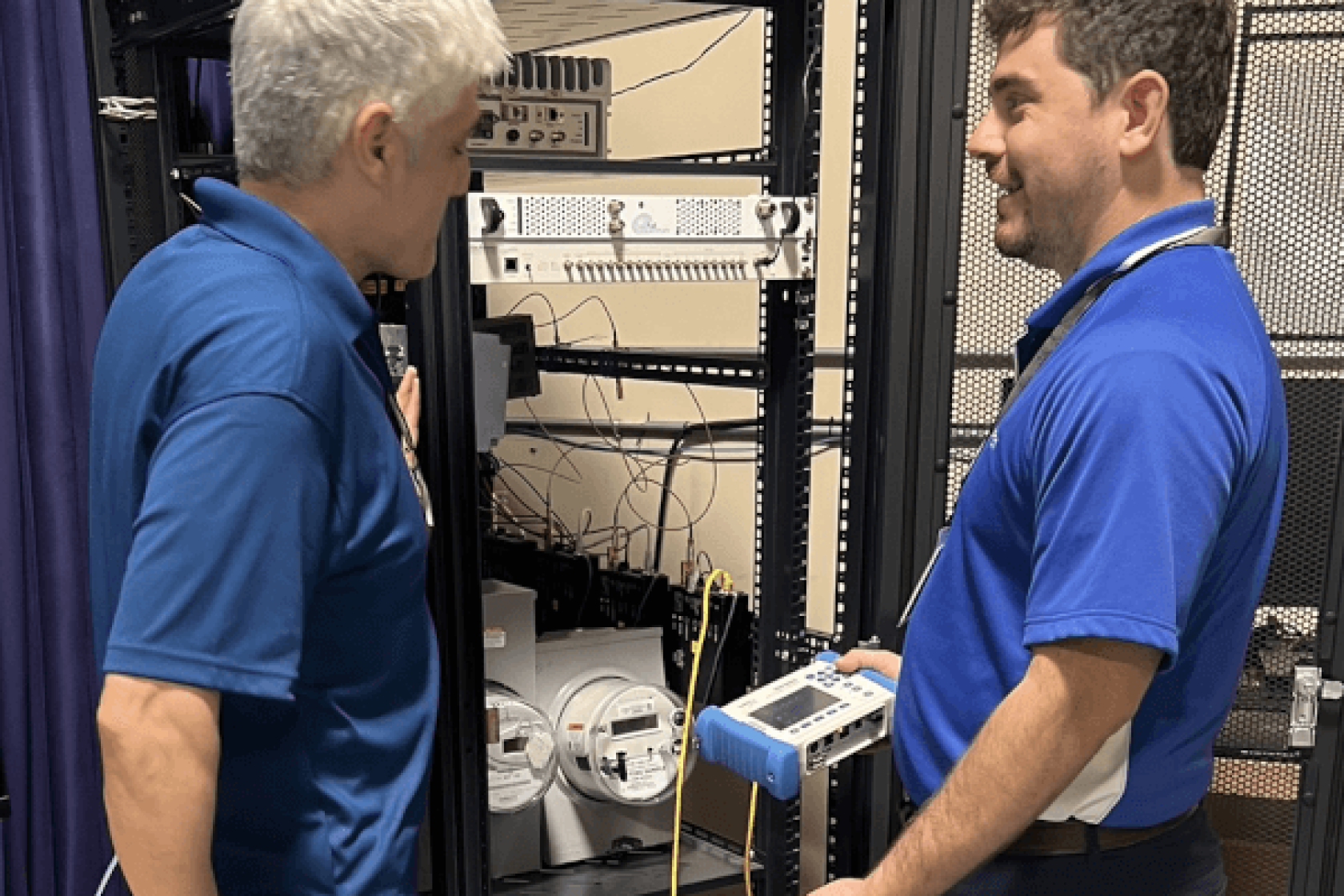
Advanced Metering Systems
Lead: Ed Beroset
This lab specializes in Advanced Metering Infrastructure (AMI) and Systems to support the ICT Program (161F) research including evaluating standard and non-standard AMI protocols. It offers reference implementations of standard protocols like DLMS/COSEM, the ANSI C12 suite and Wi-SUN. Additionally, it features an AMI System Simulator for modeling wireless network performance and capacity, for evaluating system performance of emerging applications in AMI systems.